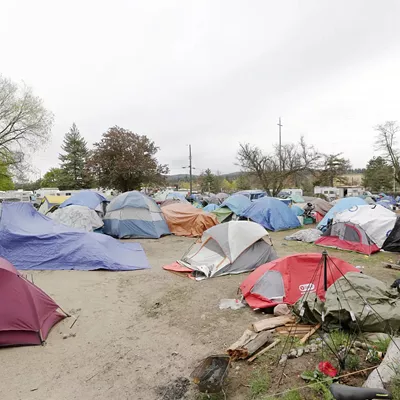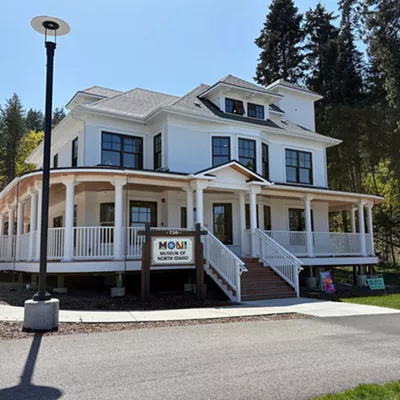The Washington State Education Association has begun to consider endorsements for the fall elections. To inform its choices, the teachers' union has decided to turn to a litmus test: Will you promise to give unqualified support to the recently approved initiatives, I-728 and I-732?
I-728 requires enough funding to reduce class sizes in the state's K-12 public schools. I-732 guarantees cost-of-living increases for teachers. As the WEA reminds candidates, both initiatives passed with overwhelming voter approval. Now they're concerned that the legislature, facing a tough budget year, will somehow look to roll back those initiatives.
Taken together, these two measures cost the taxpayers upwards of $800 million, and the number will grow as the percentage of overenrolled classes decreases.
As is always the case with initiatives, voters are presented with a one-sided argument or proposal. The sponsors aren't required to conduct a cost-impact analysis. That consideration normally comes through the deliberative process and is the responsibility of the state government. Direct democracy serves to diminish deliberative government and replace it with a juvenile, oversimplified form of governance that might be compared with a spoiled child's loud "Waaaaaaaa." (As an aside, isn't it ironic that for every belt-tightening initiative, we seem to have a belt-loosening one? If our state government seems increasingly schizophrenic, you can blame the initiative process.)
The WEA's loud "Waaaaaaa" has the ring also of a cash register, except instead of groceries going into the bag, because of I-728 and I-723, they are taken out by the cashier. You can almost hear the "ka-ching" of the register.
Because the teachers are guaranteed their cost-of-living increases and smaller class sizes, all other public employees now face a cost-of-living freeze.
But how do we fund that $800 million? By starving other programs, of course. Higher education in this state is facing huge enrollments, but state universities are closing their doors to additional students since the state is not giving them any money to handle the influx. There isn't even money available to hire research professors who can bring in much more money through grants than the price of their salaries.
The state has allowed the colleges and universities to raise tuition -- which is simply passing the cost onto the students. After all, these kids and their parents should have the money to pay; they have been pocketing that windfall that came their way a few years back when they voted to cut car tabs.
(As a footnote, I'm surprised that the tuition increases, especially at the UW and WSU, aren't much larger. Because higher education's share of our shrinking tax pool has declined steadily, our two research institutions, as they struggle to meet the public's needs, have become ever more reliant on grants and contracts just to keep things afloat. Put another way, we are in the process of creating institutions of higher learning that properly should be defined as semi-private.)
But to get over the top, budget writers will finally have to resort to the old, reliable across-the-board cuts. Ecology loses 5 percent here, and DSHS loses another $200 million or so there. That's just for starters.
Government by direct democracy -- or, as I think it might more accurately be characterized, government by "Waaaaaa" -- is as close to anarchy as we can get and still claim to have a government, at least a government that the Founding Fathers would recognize.
The side effect of all this nonsense is equally serious. As the resultant problems mount, the government -- that is, the duly elected government -- finds itself with fewer and fewer legislative resources to direct towards problems and needs. But the voters don't seem to care. After all, "the voters have spoken." Thus angered by ineffective government, what do the voters do? Pass even more initiatives, of course. If a little direct democracy is a good thing, more must be better.
I can't believe that any thoughtful citizen wants all this. Would anyone who voted for these two irresponsible initiatives have marked "yes" on their ballot had they been forced, at the same time, to make all the cuts that have resulted? Would even the direct beneficiaries, the teachers, vote to take a pay increase had they known that their pay increase meant that no other public servant would get a pay increase? I really doubt it. Would concerned parents across the state have voted for these initiatives had they realized that their kids would face those increased college expenses -- assuming that their kids can still even get in? I really doubt it.
The advice to the voter seems clear: If your favorite candidate caves to WEA pressure and campaigns on the promise not to reconsider these two pernicious initiatives, run. Get the headquarters address of the candidate's opponent and see if you can find the proverbial honest man or woman.


















